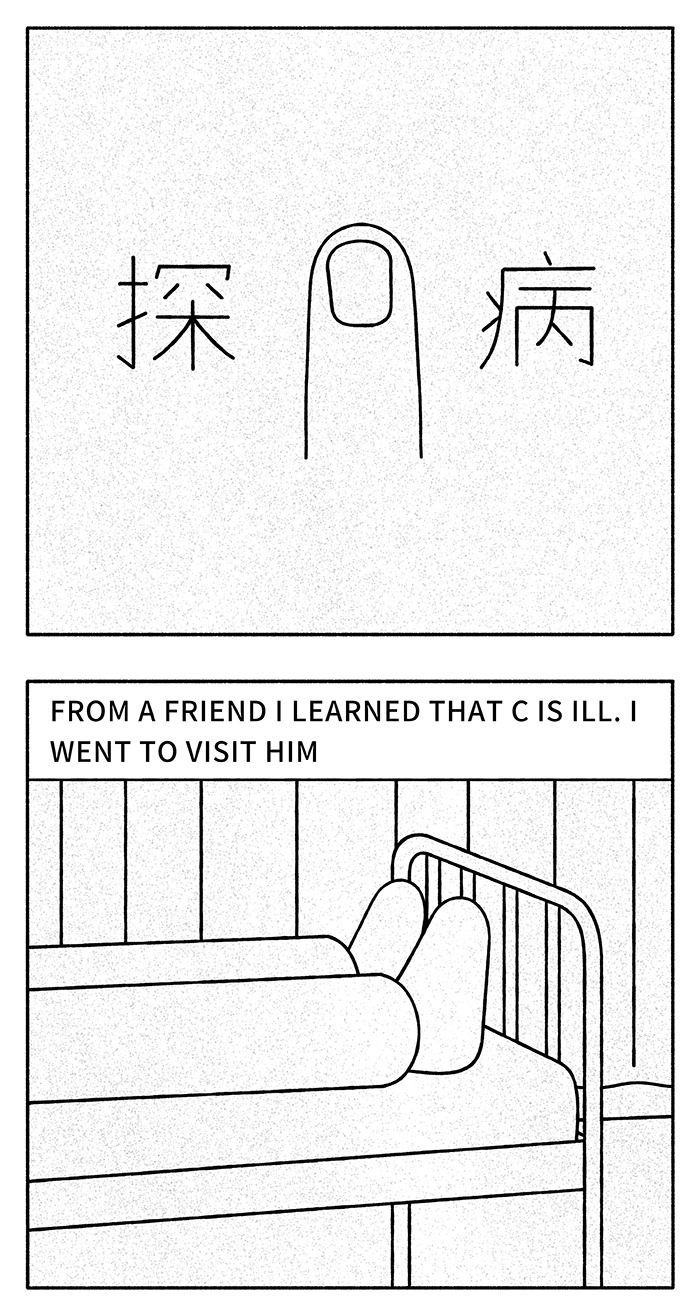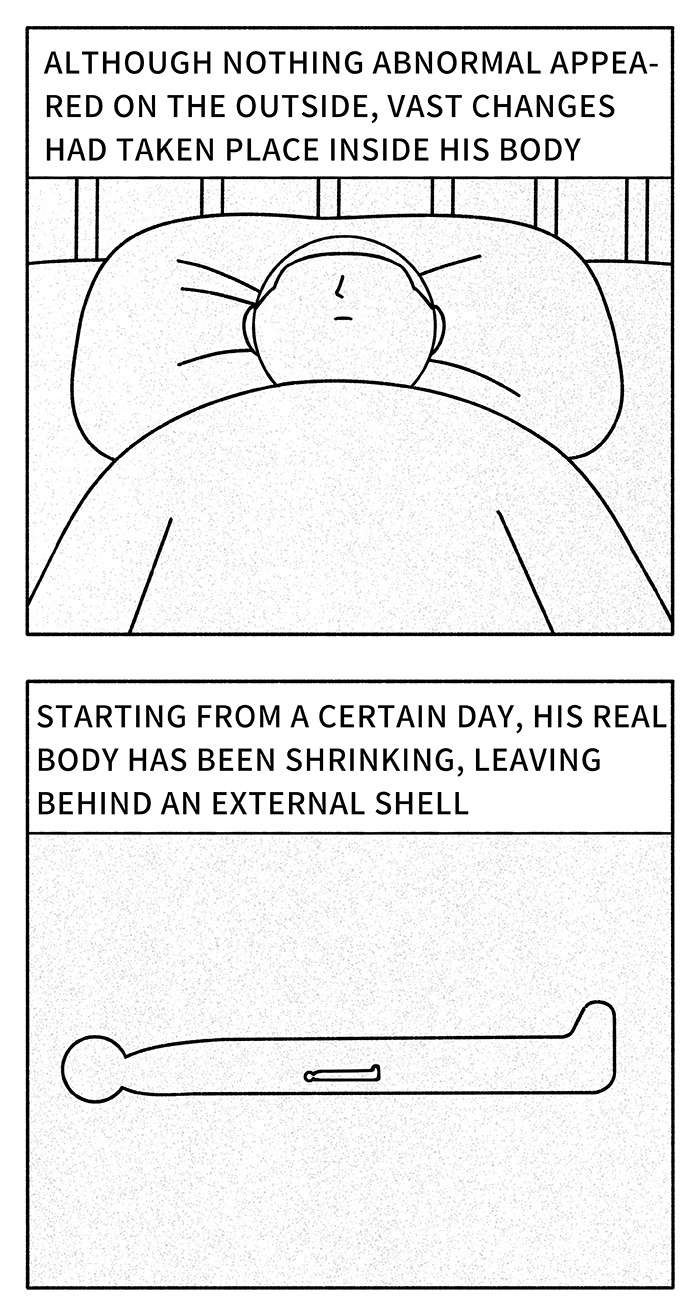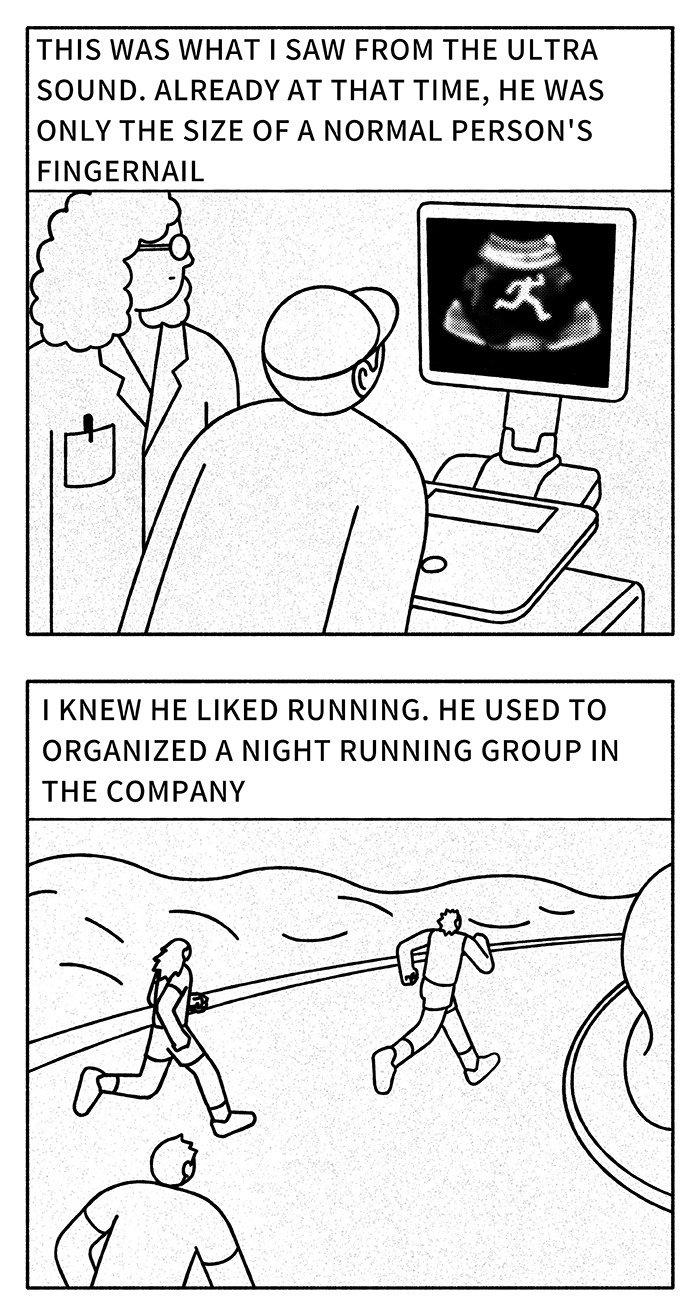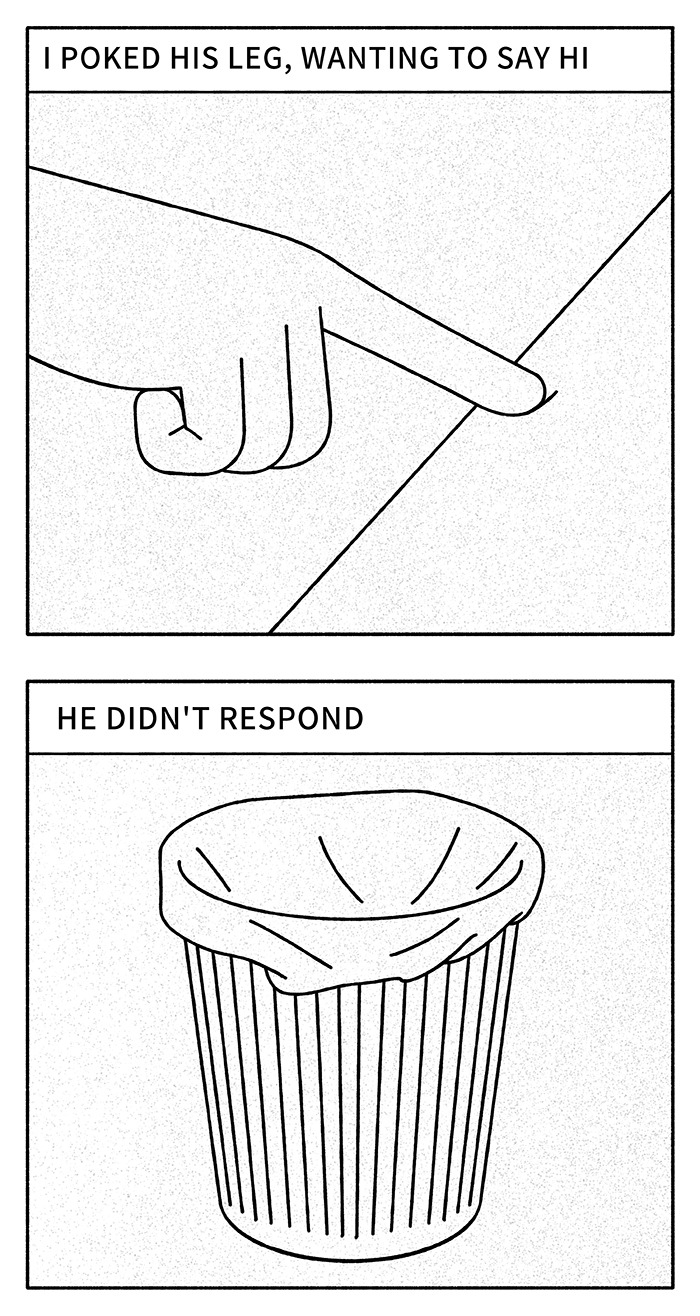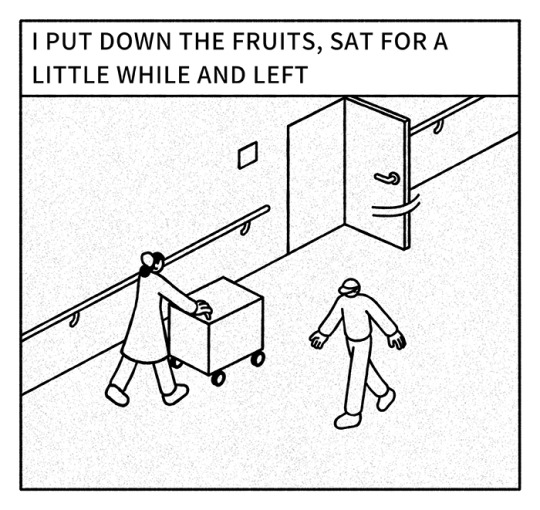Text
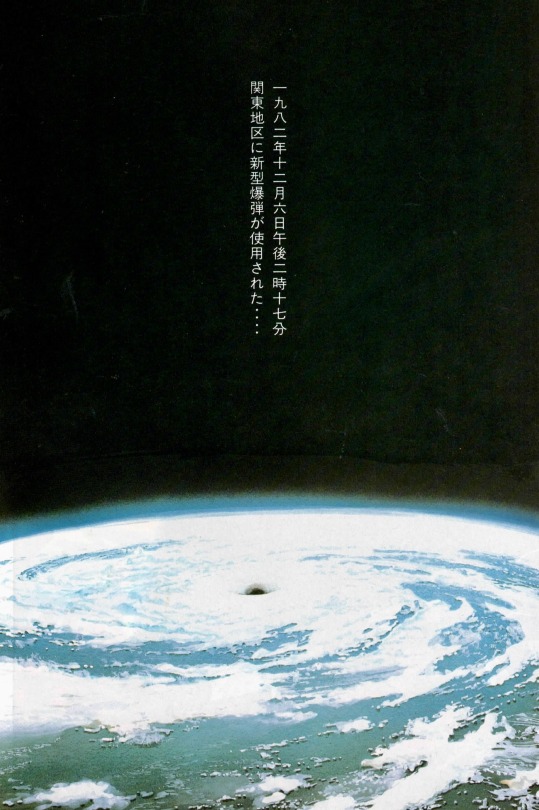
From AKIRA (the manga, 1982) by Katsuhiro Otomo
2K notes
·
View notes
Text








附近20 Nearby20
Translation: Guandi Wu ( @sarah.guandiwu ) Proofreading: Amir Hampel
190 notes
·
View notes
Text
Honestidade é alcançada pela porta do luto e da perda.

Honestidade é alcançada pela porta do luto e da perda. Onde não conseguimos ir em nossa mente, em nossa memória ou em nosso corpo é onde não conseguimos ser francos com os outros, com o mundo ou conosco mesmos. O medo da perda, de uma forma ou de outra, é o motivador por trás de todas as desonestidades conscientes e inconscientes: todos nós nascemos com medo da perda, em todas as suas formas, todos nós, em algum momento, somos assombrados ou até mesmo esmagados pela simples possibilidade do desaparecimento, e todos nós, portanto, estamos a um passo da desonestidade. Todo ser humano habita intimamente perto de uma porta de revelação que teme atravessar. A honestidade reside na compreensão de nossa relação próxima e inevitável com a recusa em ouvir a verdade. A capacidade de falar a verdade é tanto a habilidade de descrever como é estar diante dessa porta, tomado pelo receio, quanto a de realmente atravessá-la e nos tornarmos aquele belo guerreiro espiritual, igual a todas as circunstâncias, que desejamos ser. A honestidade não é a revelação de alguma verdade fundamental que nos dá poder sobre a vida, sobre o outro ou mesmo sobre nós mesmos, mas uma encarnação vigorosa na vulnerabilidade desconhecida da existência, onde reconhecemos o quão impotentes nos sentimos, o quão pouco realmente sabemos, o quão temerosos estamos de não saber e o quão espantados ficamos com a generosa medida de perda que recai até mesmo sobre a vida mais comum. A honestidade está enraizada na humildade e, de fato, na humilhação, e em admitir exatamente onde somos impotentes. A honestidade não se encontra em revelar a verdade, mas em compreender o quanto temos medo dela. Tornar-se honesto é, em essência, tornar-se plenamente e vigorosamente encarnado na própria impotência. A honestidade nos permite viver sem saber. Não conhecemos a história completa, não sabemos em que ponto dela estamos; não sabemos, no fim das contas, quem é o culpado ou quem carregará a responsabilidade no final. A honestidade não é proteção; a honestidade não é uma arma para afastar a perda e a dor; a honestidade é o diagnóstico externo de nossa capacidade de aterrissar na realidade, o solo mais difícil de todos de se alcançar, o lugar onde realmente habitamos, a fronteira viva e pulsante onde não nos é dada escolha entre ganho ou perda. — David Whyte
Honesty is reached by the doorway of grief and loss. Where we cannot go in our mind, our memory, or our body is where we cannot be straight with another, our world, or our self. The fear of loss, in one form or another, is the motivator behind all conscious and unconscious dishonesties: all of us are born to be afraid of loss, in all its forms, all of us, at times, are haunted or overwhelmed even by the possibility of a disappearance, and all of us therefore, are but one short step away from dishonesty. Every human being dwells intimately close to a door of revelation they are afraid to pass through. Honesty lies in understanding our close and necessary relationship with not wanting to hear the truth. The ability to speak the truth is as much the ability to describe what it is like to stand in trepidation at this door, as it is to actually go through it and become that beautifully honest spiritual warrior, equal to all circumstances, we want to become. Honesty is not the revealing of some foundational truth that gives us power over life or another or even the self, but a robust incarnation into the unknown unfolding vulnerability of existence, where we acknowledge how powerless we feel, how little we actually know, how afraid we are of not knowing and how astonished we are by the generous measure of loss that is conferred upon even the most average life. Honesty is grounded in humility and indeed in humiliation, and in admitting exactly where we are powerless. Honesty is not found in revealing the truth, but in understanding how deeply afraid of it we are. To become honest is in effect to become fully and robustly incarnated into powerlessness. Honesty allows us to live with not knowing. We do not know the full story, we do not know where we are in the story; we do not know who ultimately, is at fault or who will carry the blame in the end. Honesty is not protection; honesty is not a weapon to keep loss and heartbreak at bay, honesty is the outer diagnostic of our ability to come to ground in reality, the hardest attainable ground of all, the place where we actually dwell, the living, breathing frontier where we are given no choice between gain or loss. — David Whyte
#honesty#honestidade#vulnerability#loss#spirituality#DavidWhyte#reflection#autoconhecimento#vulnerabilidade#perda#espiritualidade#reflexão#selfawareness
0 notes
Text


Doechii "Denial Is A River" posters inspired by The Sims 2 Advertisements
26K notes
·
View notes
Text
Writers are great lovers. They fall in love with other writers. That's how they learn to write. They take on a writer, read everything by him or her, read it over again until they understand how the writer moves, pauses, and sees. That's what being a lover is: stepping out of yourself, stepping into someone else's skin....Great lovers realize that they are what they are in love with. That is what happened to Allen Ginsberg when he wanted to write so that Jack Kerouac could understand him: "...being in love with Jack Kerouac he discovered he was Jack Kerouac: that's something love knows."
Natalie Goldberg, Writing Down the Bones
3 notes
·
View notes
Text
Cuando los relojes de la media noche prodiguen un tiempo generoso, iré más lejos que los bogavantes de Ulises a la region del sueño, inaccessible a la memoria humana. De esa region inmersa rescato restos que no acabo de comprender: hierbas de sencilla botánica, animales algo diversos, diálogos con los muertos, rostros que realmente son mascaras, palabras de lenguajes muy antiguos y a veces un horror incomparable al que nos puede dar el día. Seré todos o nadie. Seré el otro que sin saberlo soy, el que ha mirado ese otro sueño, mi vigilia. La juzga, resignado y sonriente.
0 notes
Text






My instagram:instagram.com/woshibaii
My tiktok:.tiktok.com/@woshibai_art
玻璃Glass
Translated by Guandi Wu
414 notes
·
View notes
Text

Green and red pattern. Recherches sur les fièvres. 1821. Marbled book cover.
Internet Archive
2K notes
·
View notes
Photo

Warning sign. A fear submitted by Giselle to Deep Dark Fears - thanks! You can find original artwork in my shop! Click here!
3K notes
·
View notes
Text
[...] Água e navegação têm realmente esse papel. Fechado no navio, de onde não se escapa, o louco é entregue ao rio de mil braços, ao mar de mil caminhos, a essa grande incerteza exterior a tudo. É um prisioneiro no meio da mais livre da mais aberta das estradas: solidamente acorrentado à infinita encruzilhada. É o passageiro por excelência, isto é, o prisioneiro da passagem, E a terra à qual aportará não é conhecida, assim como não se sabe, quando desembarca, de que terra vem. Sua única verdade e sua única pátria são essa extensão estéril entre duas terras que não lhe podem pertencer. (FOUCAULT, 1972, p. 8).

O Navio dos Loucos / A Nave dos Loucos / A Nau dos Insensatos, Hieronymus Bosch (1450 — 1516)
2 notes
·
View notes
Photo

Learning from India
Blaine Brownell looks to centuries-old Indo-Islamic architecture for lessons on how simple, passive strategies can make a big difference in confronting a warming climate.
Continuar lendo
450 notes
·
View notes


